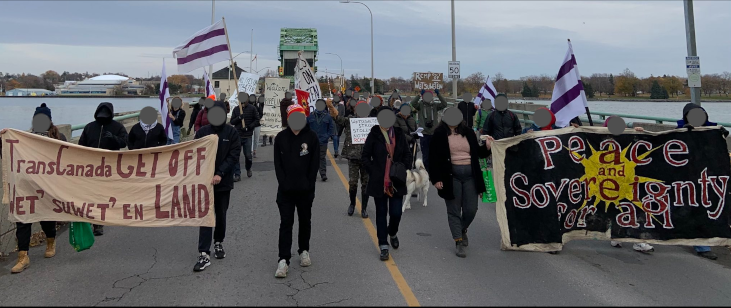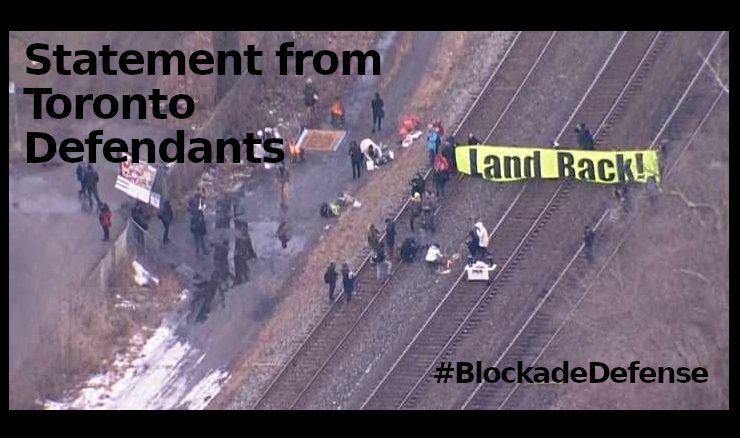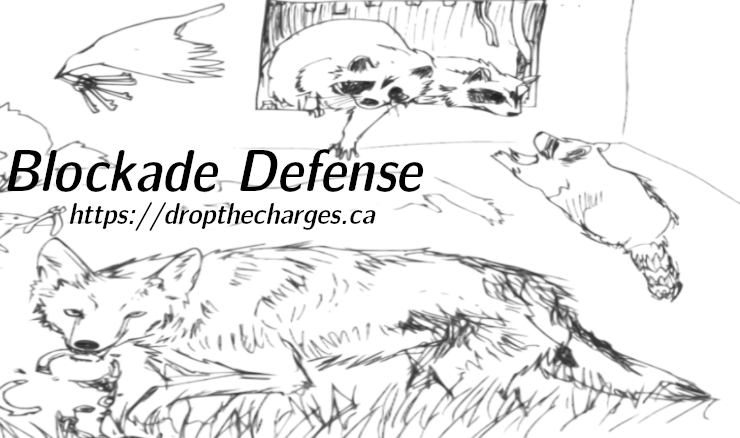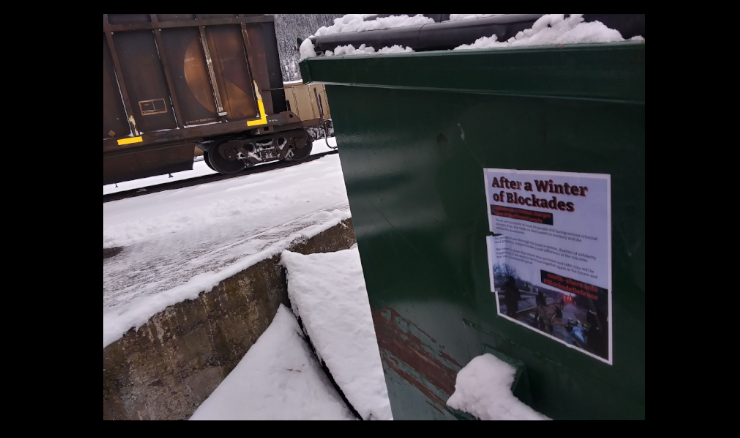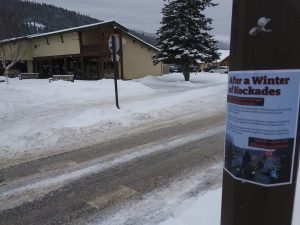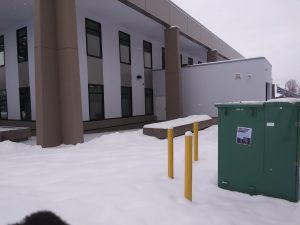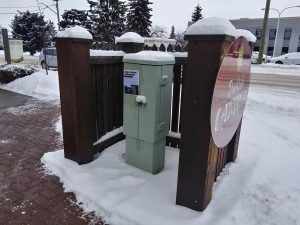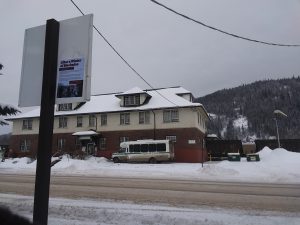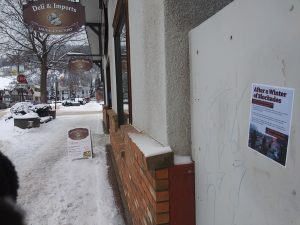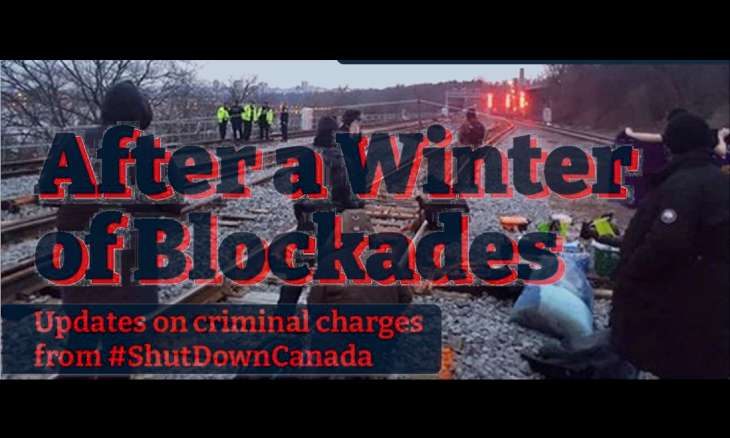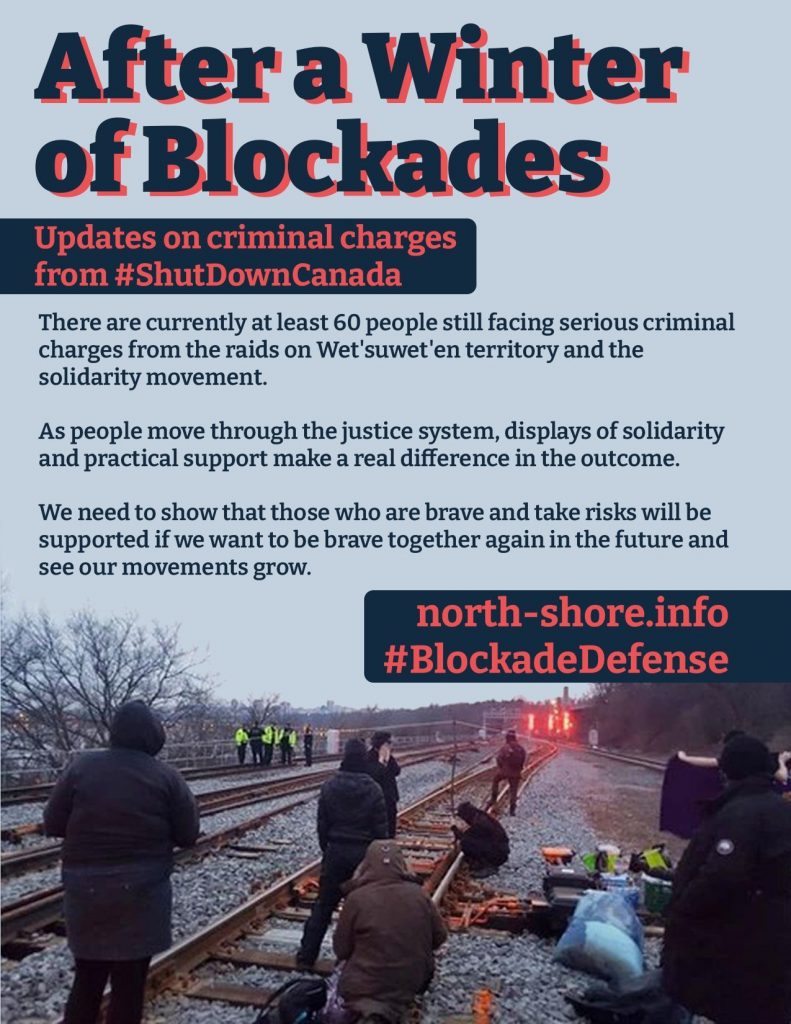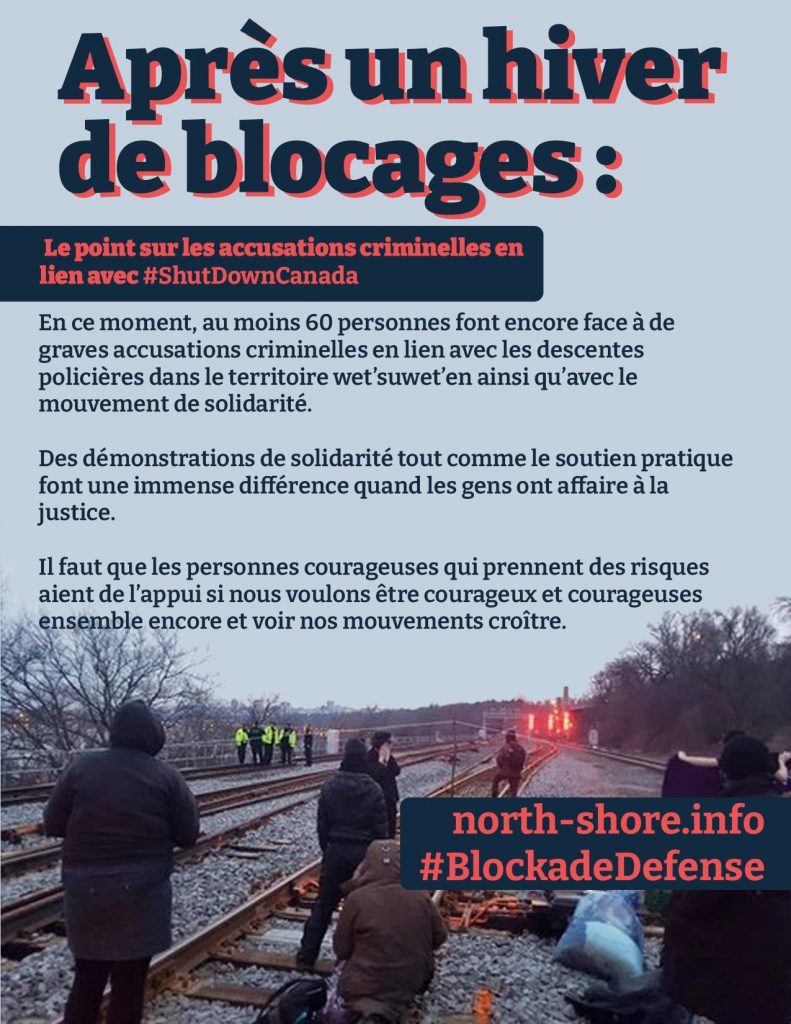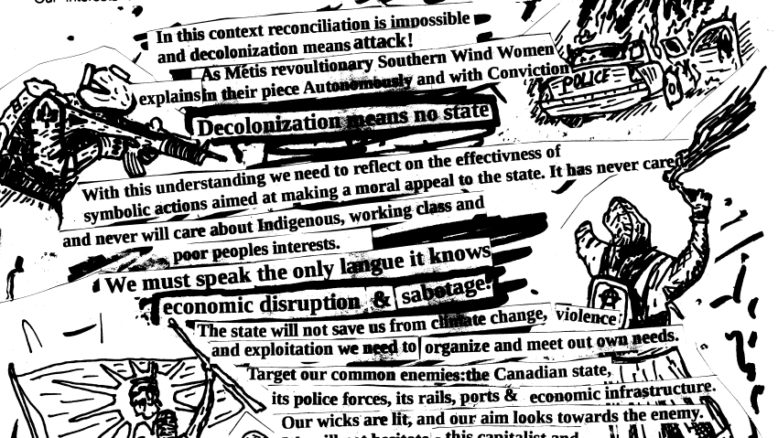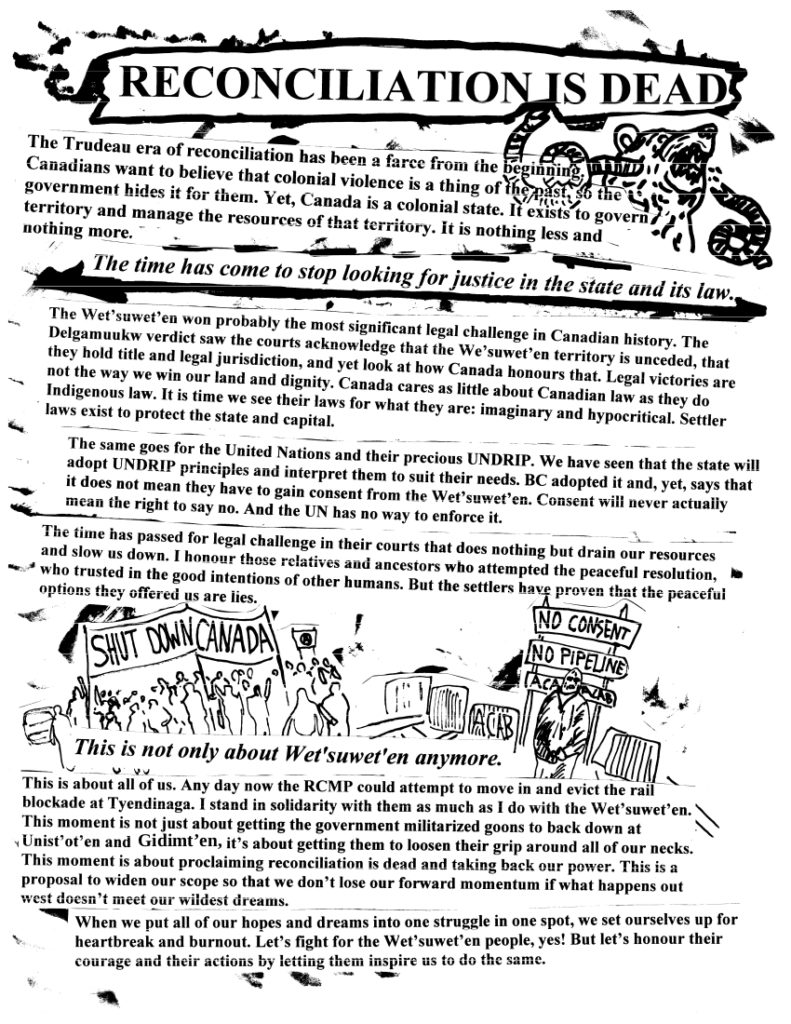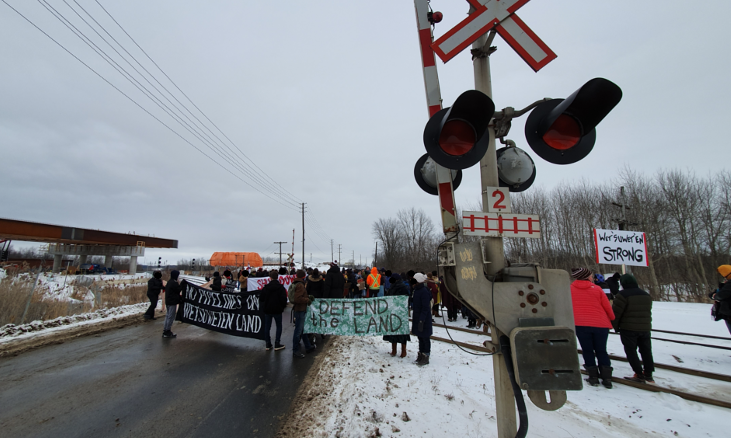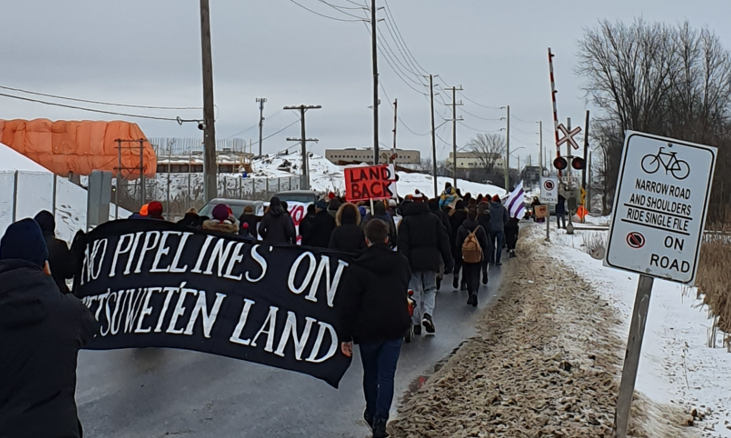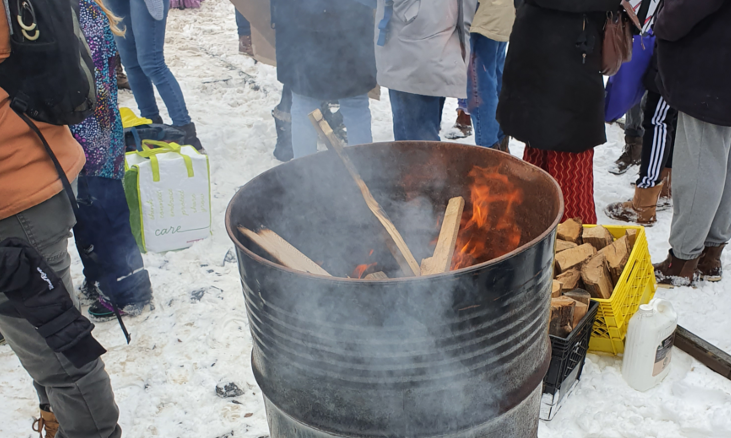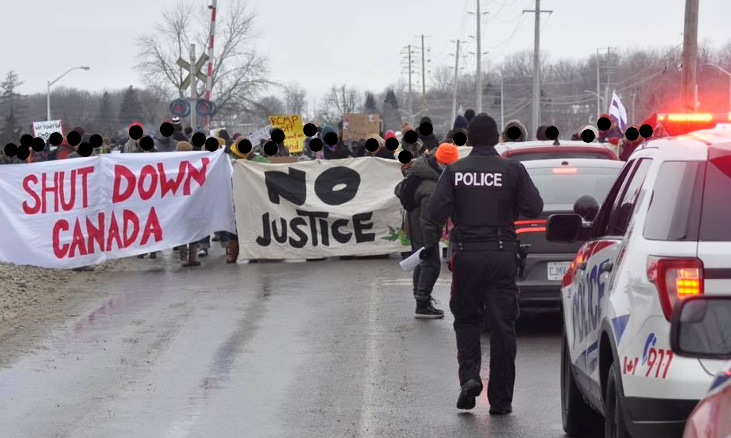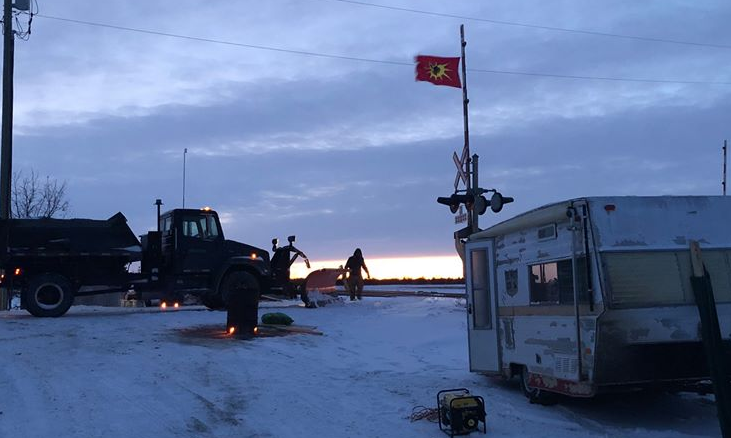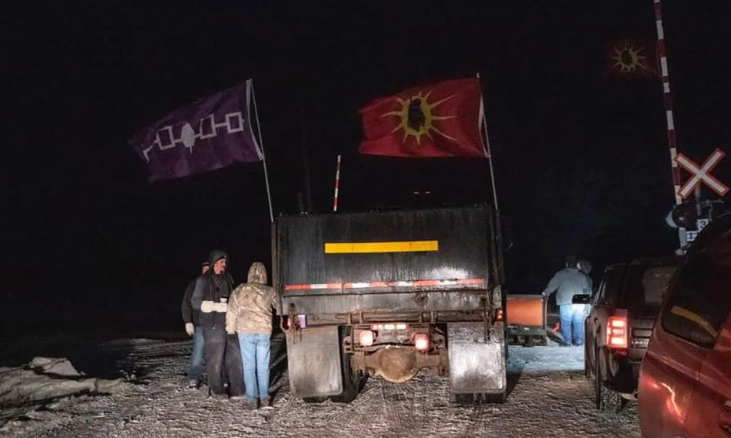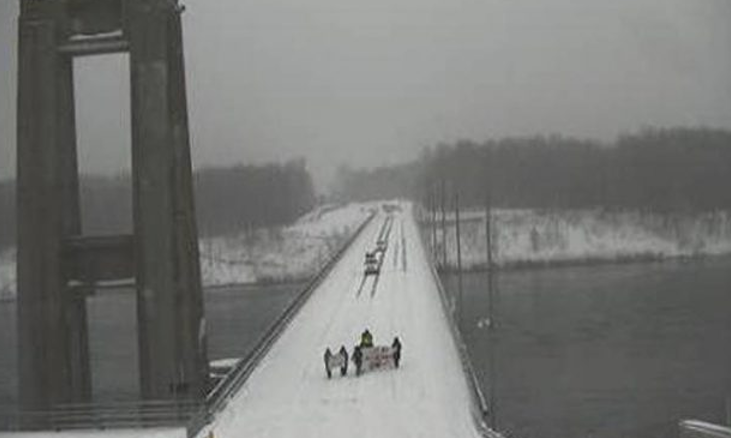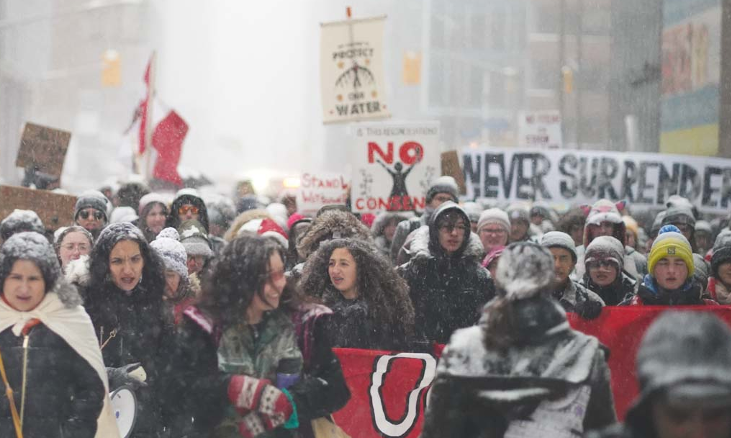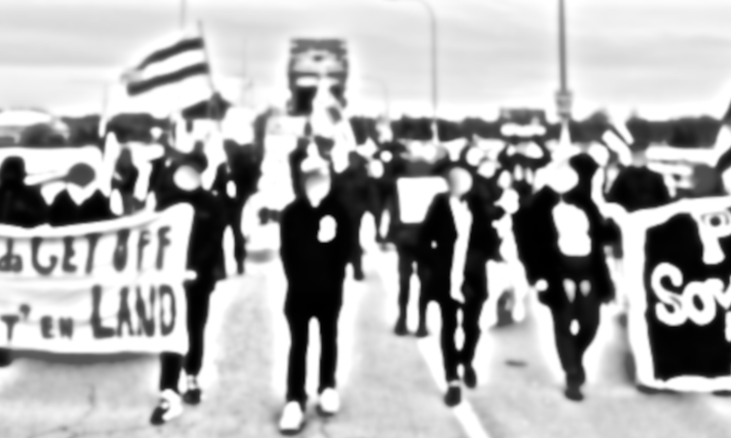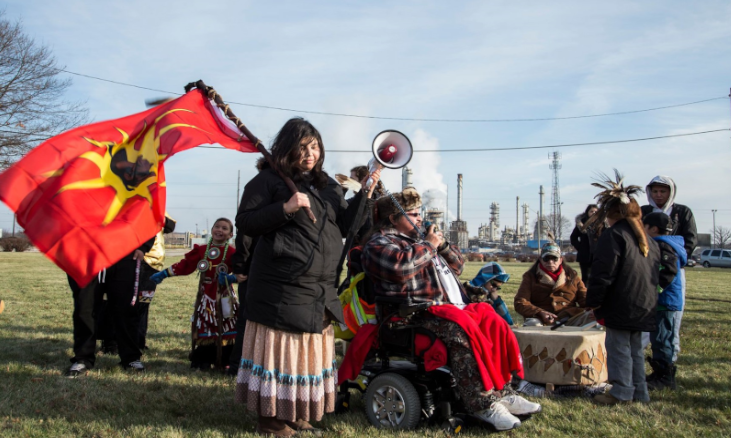Anonymous Submission to North Shore Counter-Info
Download printable PDF here
Introduction
On April Fools Day 2024, Kingston residents received some surprising news – the La Salle Causeway was suddenly “closed until further notice,” without explanation. The bridge – a busy economic artery which links the city’s downtown to the east end – had apparently been damaged during routine construction work and was now unsafe to use. A few days later, it was revealed that repairs would take “several weeks,” trapping local cruise boats on the north side of the bridge and delaying the start of the tourist season. On May 28, it was revealed that irreparable structural flaws had been discovered and demolition of the bridge would begin immediately. This was big news, and local forums began to flood with nostalgic farewells.
All of the commotion prompted me to reflect with others on the many personal memories and stories relayed by older activists about the causeway, which has served as backdrop to numerous protests and blockades over the years. These conversations led to this zine, compiled as a kind of farewell: the bridge we loved to block.
Of course, we didn’t actually love the structure itself. Some will miss the eerie hum of vehicles traversing the bridge, which you could hear all up the river, although it’s hard to forget that godawful video someone made a few years back where the sounds were compiled into a rendition of “O Canada.” We don’t love the guy it was named after, Rene-Robert Cavelier (Sieur de La Salle), a French colonizer who oversaw the construction of Fort Frontenac, which served as a base of operations for rapacious fur trade expeditions and military conflicts with the Haudenosaunee. Fuck that guy.
What we remember fondly about the bridge, like many Kingstonians, are the memories we made there. The causeway is walkable from the usual downtown gathering places for demonstrations and direct actions, making it easier to organize breakaway marches and such. It serves as a natural chokepoint for the flow of traffic in and out of the Kingston city core, especially before the completion of the Waaban Crossing in 2022. The bridge portion was two lanes with barriers on either side, which meant it could be slowed or blocked by as few as 6 people (although that felt pretty sketchy).
Why block a bridge? Well … why not? The never-ending tactical debates are beyond the scope of this zine. However, if you look at the stories highlighted below, it’s clear that these actions generally emerge in the context of a broader crisis or emergency, and form one part of larger campaigns that deploy a diversity of tactics. A common theme is a perceived need to escalate action to the point that everyday life is impacted, to force people to pay attention and talk about it with friends, family and coworkers (even if they’re pissed off), and to send a message that the current situation is untenable. Disruptive solidarity actions in response to state repression of indigenous land defenders in particular, from Kanehsatake in 1990 to Six Nations in 2006 to Wet’suwet’en in 2020, have built up an important reflex and track record in this country that includes targeting highways and rail lines. By now, police and politicans across Canada know that if they attack a land reclamation, there will be an economic and political price to pay. It’s far from enough, but it’s a start.
I will fondly remember the La Salle Causeway as one place in Kingston where anarchists and radicals experimented with direct action outside of the tired rituals and photo-ops at City Hall. It’s also where we gained experience and confidence that we could build on, and during #ShutDownCanada 2020 we were able to aim bigger, culminating in some of the most inspiring actions I’ve ever participated in locally, including rail occupations and blocking the Thousand Islands International Bridge.
This zine is released in the hopes of carrying forward these stories as we continue building our capacity to “block everything.” What follows are a few glimpses into actions on the causeway, told through mainstream news reports and activist communiques. May this serve as some inspiration to local troublemakers, both aging and aspiring. Farewell, old bridge!
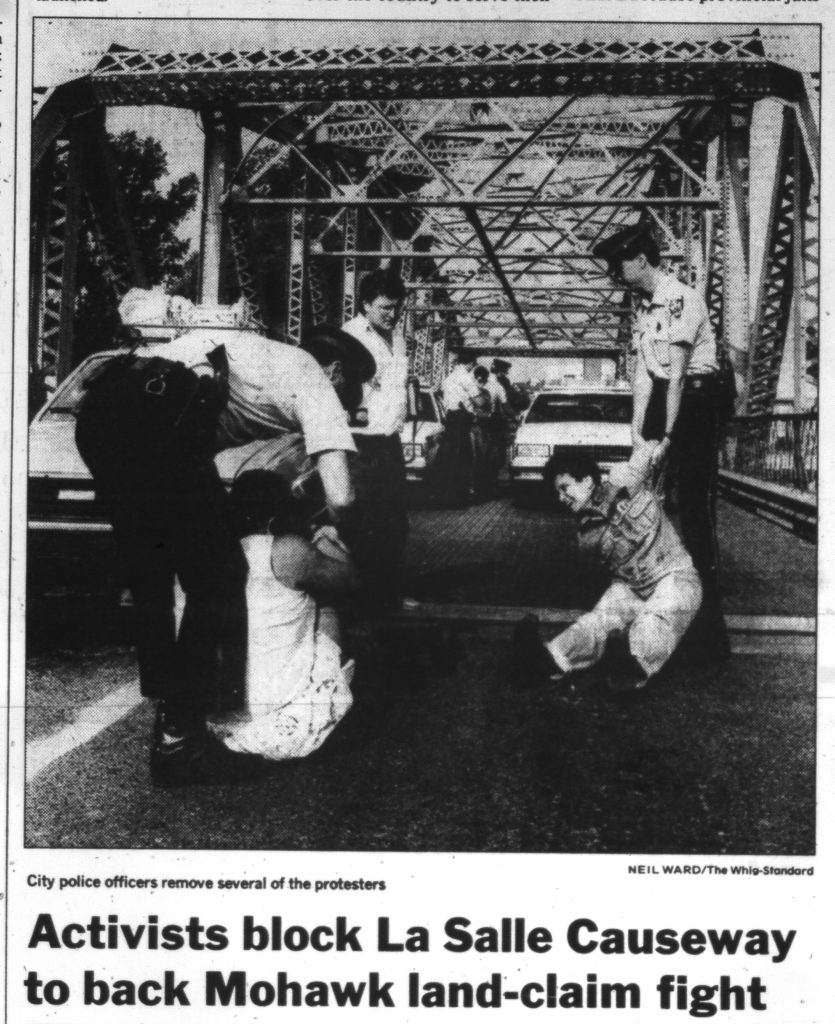
Jeff Outhit, The Whig-Standard – 17 July 1990
Anger and arrests marked a brief blockade of the La Salle Causeway this morning when local activists stopped rush-hour traffic in support of Quebec Mohawks. The peaceful protest was held to support natives who are fighting a deadly land-claim battle over a proposed golf course expansion in Oka, Que.
A police officer was shot dead in that dispute last week. There were no natives at this morning’s protest.
The half-hour blockade ended when city police arrested seven women and one man who sat on the highway in front of traffic. Angry motorists had earlier removed a makeshift stone barrier that 30 protesters had erected across the narrow two-lane drawbridge.
The eight arrested protesters have been charged with mischief and obstructing police, city police said this morning.
The brief blockade of the only bridge into downtown Kingston was marked by angry confrontations.
“These people are blocking my way, I’m a citizen, I have a right to get across this bridge,” yelled Hotel Dieu Hospital’s Dr. Ronald Lees, who argued loudly with several demonstrators before they consented to let him cross the bridge.
Elaine Steele bumped her station wagon up against the stone barricade several times before parking her car in frustration and walking to work.
“What they’re doing is not going to help them in Oka,” she fumed as she made her way through the protesters.
“People are going to be more concerned about the stupid blockade. If they want to do something to help, they should go see that asshole Mulroney.” Other motorists jeered and swore at the demonstrators after police opened up the bridge. But some also waved and honked in support.
“In the process of irritation, people will realize what is happening to native people,” protester Peter Dundas explained.
“White Canada should be able to put up with a little irritation, compared to the genocide facing native people.”
A few angry motorists cleared away the stones that protesters had piled across the highway. The protesters responded by sitting down in front of traffic, but were soon cleared away by police.

Protester Stacey Kempffer had earlier decided not to get arrested but changed her mind when police arrived.
“People don’t know what’s happening to the Indians,” she said as police dragged her off to a waiting cruiser.
Dave Rowell and his son Ted were among the few stranded motorists who cleared away the stone blockade while protesters watched. They said the blockade would damage support for native groups.
“If I didn’t know them already,” Mr. Rowell said of the natives, “I wouldn’t support them after this.”
The demonstrators included several well-known activists who have protested repeatedly for native rights and disarmament.
Peter Dundas, Brad Waugh, and former East Timor hunger-striker Bill Ripley were among those who took part in this morning’s blockade.
Many of those who took part are members of the local activist group that calls itself Action for Social Change. But the blockade was not an official group effort, Mr. Dundas said.
Kingston Alderman Bill Jamieson was among those whose trip to work was delayed by the blockade. “People have a right to protest, there’s no doubt in my mind about that,” Mr. Jamieson said. “But this is irresponsible.”
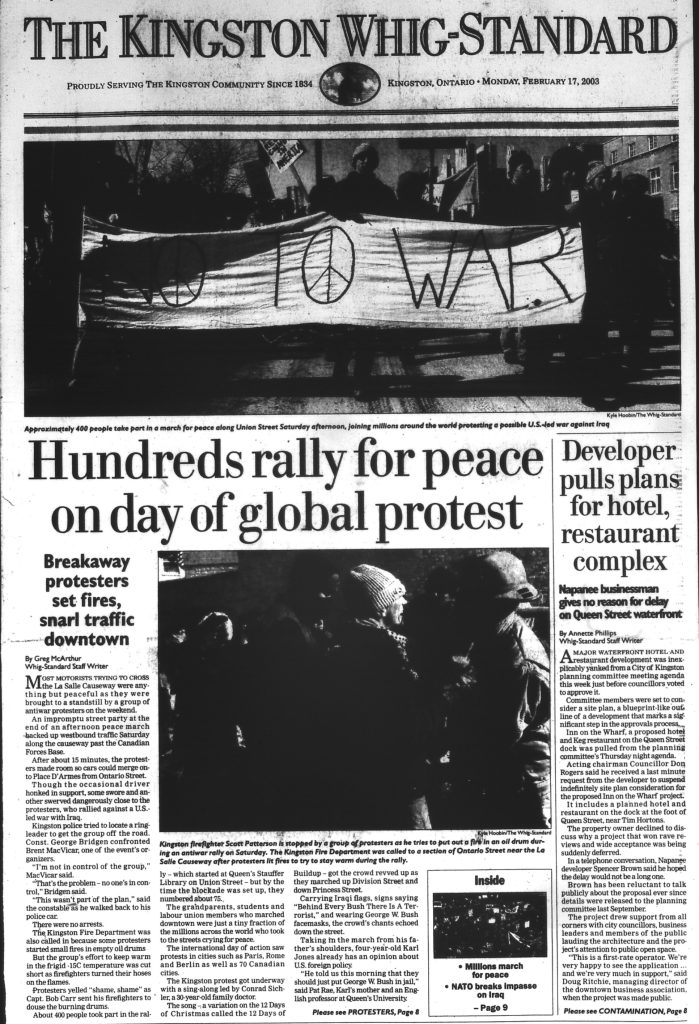
Hundreds rally for peace on day of global protest
Breakaway protesters set fires, snarl traffic downtown
February 17, 2003 – Greg McArthur, The Kingston Whig-Standard
Most motorists trying to cross the La Salle Causeway were anything but peaceful as they were brought to a standstill by a group of antiwar protesters on the weekend.
An impromptu street party at the end of an afternoon peace march backed up westbound traffic Saturday along the causeway past the Canadian Forces Base.
After about 15 minutes, the protesters made room so cars could merge onto Place D’Armes from Ontario Street.
Though the occasional driver honked in support, some swore and another swerved dangerously close to the protesters, who rallied against a U.S.-led war with Iraq.
Kingston police tried to locate a ringleader to get the group off the road. Const. George Bridgen confronted Brent MacVicar, one of the event’s organizers.
“I’m not in control of the group,” MacVicar said.
“That’s the problem – no one’s in control,” Bridgen said.
“This wasn’t part of the plan,” said the constable as he walked back to his police car.
There were no arrests.
The Kingston Fire Department was also called in because some protesters started small fires in empty oil drums.
But the group’s effort to keep warm in the frigid -15C temperature was cut short as firefighters turned their hoses on the flames.
Protesters yelled “shame, shame” as Capt. Bob Carr sent his firefighters to douse the burning drums.
About 400 people took part in the rally – which started at Queen’s Stauffer Library on Union Street – but by the time the blockade was set up, they numbered about 75.
The grandparents, students and labour union members who marched downtown were just a tiny fraction of the millions across the world who took to the streets crying for peace.
The international day of action saw protests in cities such as Paris, Rome and Berlin as well as 70 Canadian cities.
The Kingston protest got underway with a sing-along led by Conrad Sichler, a 30-year-old family doctor.
The song – a variation on the 12 Days of Christmas called the 12 Days of Buildup – got the crowd revved up as they marched up Division Street and down Princess Street.
Carrying Iraqi flags, signs saying “Behind Every Bush There Is A Terrorist,” and wearing George W. Bush facemasks, the crowd’s chants echoed down the street.
Taking in the march from his father’s shoulders, four-year-old Karl Jones already has an opinion about U.S. foreign policy.
“He told us this morning that they should just put George W. Bush in jail,” said Pat Rae, Karl’s mother and an English professor at Queen’s University.
Some protesters were more critical of Canada’s government.
Prime Minister Jean Chretien’s recent warning that the U.S. shouldn’t subvert the United Nations didn’t win the prime minister much support from 19-year-old Ian Griffiths.
The Queen’s student held a sign saying “Get a spine Chretien. No War.”
“We’re our own country. We should have our own voice. I don’t support a war with or without the United Nations,” Griffiths said.
A small group broke off and made for the closed offices of MP Peter Milliken and MPP John Gerretsen, when the march stopped on Princess Street for some speeches near the Lasalle Mews shopping complex.
They plastered the politicians’ office windows with tiny stickers displaying the peace symbol before a clerk working at Paul Randolph Jewellers shooed them away.
As a pickup truck blaring techno music and reggae led the march, shoppers and store clerks stopped on the sidewalks to watch.
Adel Sheikh Amin has a personal stake in promoting peace. While the U.S. beats war drums, his father is in Kuwait, a country that might be struck by Iraq if it’s invaded.
Lots of foreigners have already started to flee the tiny country, which borders Iraq, but his father isn’t so lucky.
“He can’t just pack up and leave because he’s self-employed,” Sheikh Amin said. Because his father is a Canadian citizen, he’s hopeful the Canadian embassy will look after him if there’s a crisis. But until then, he has to wait.
At the Ontario Street blockade, protesters cooked on a barbecue and gave out free chili. The marchers who stuck it out to the end tried to keep warm by dancing.
The driver of a Leonard Fuels Shell gasoline truck got a shock when some protesters stepped in front of his eastbound vehicle.
Screaming “No blood for oil” at the driver, who looked out his window at police for help, the protesters stalled eastbound traffic momentarily. Police quickly moved in and made the protesters move out of the way.
After about 30 minutes, the small group made its way back toward Princess Street and police reopened the westbound lanes of Ontario Street.

The Media Co-op – 7 March 2014
A group of about 10 people blocked traffic and handed out flyers on the La Salle Causeway yesterday morning. We also flyered car windshields throughout downtown Kingston.
We took this action in solidarity with Tyendinaga Mohawks who are currently blockading Shannonville Road demanding a genuine inquiry into the murders and disappearances of Indigenous women across Canada.
The Tyendinaga blockade is part of a week of direct action that was promised by Mohawk activists if the federal government did not announce a public inquiry by the end of February.
The violence that Aboriginal women face is a direct result of historic and ongoing Canadian colonialism. If Canada were not founded on stolen Native land, these women would not be experiencing the poverty, racism, and neglect that allows these murders to happen and be ignored.
These campaigns are just a small part of many long and intense struggles for justice, land and self-determination that have been waged by native communities since the early days of Canadian settlement and colonization.
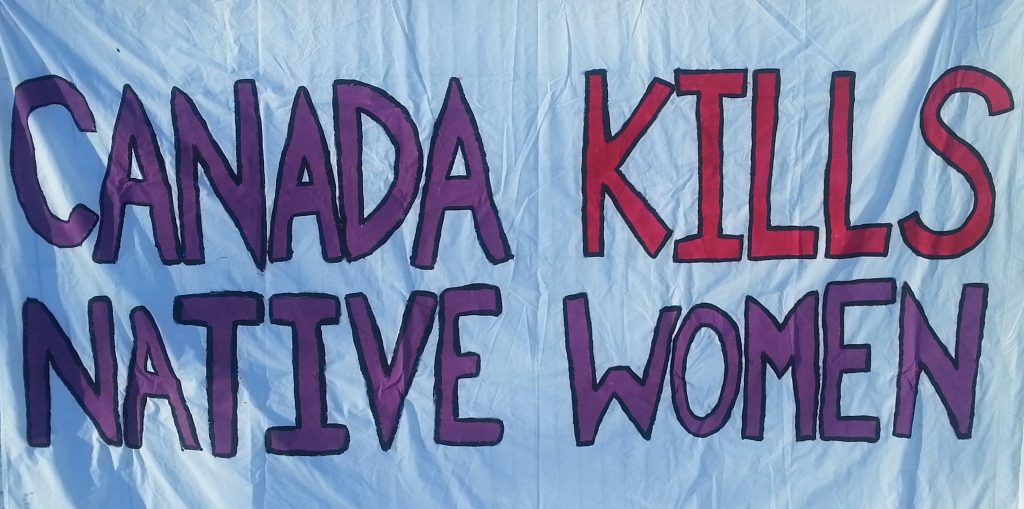
The Media Co-op – 13 February 2015
Two Shut Down Canada actions took place today in Kingston, Ontario. This morning, a small group of eight people blocked traffic on the La Salle Causeway during rush hour. We held banners that read “Shut Down Canada” and “Canada Kills Native Women” and flyered the cars that were stopped. We created a traffic jam and and it was fun and easy to pull off with a small group of people.
In the evening, Idle No More Kingston held a round dance to demand an inquiry into the deaths of over 2000 missing and murdered indigenous women. About 25 people held a downtown intersection for a round dance and briefly stopped traffic.
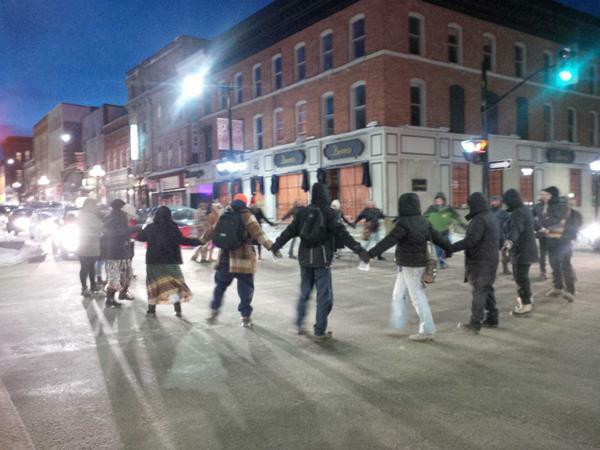
North Shore Counter-Info – 24 November 2021
On the afternoon of Sunday November 21, about 100 people blocked the La Salle Causeway in Kingston in solidarity with Wet’suwet’en land defenders and their supporters, following an RCMP raid on Thursday and multiple arrests.
People met up at a nearby location, smudged and then walked onto the causeway. We held the bridge for about an hour for speeches, drumming and songs. We left as some cops were amassing, but before they had started trying seriously to remove us from the causeway.
Just a few thoughts on angry drivers, for anyone thinking about planning similar actions in the future:
Dealing with angry bystanders is a typical part of any disruptive action. One story in particular that we heard at least five times from angry drivers who got out of their cars to intimidate us was that they had a sick child to get home to. I hate to say it, but most of them are probably lying.
They are grasping wildly for whatever they think will make you most likely to let them through. Or they are just mad and they are saying the thing they think will reveal you to be a total monster who wants to kill children or some other nonsense.
We tried to calmly but firmly reassure people that we weren’t going anywhere, it was going to be a long time, and they were welcome to wait but that if they truly were rushing home with a sick child it would be a lot faster to stop wasting their time yelling at us and just take a detour to the other bridge.
(We would *of course* let an ambulance through. Or a fire truck. But that one guy who’s screaming about how we are blocking emergency vehicles, with no ambulance in sight? No way.)
It can be hard to stand your ground in a situation where people are getting out of their cars and being aggressive, or acting like they are going to drive through the crowd. But letting individual cars through “because they have a good reason” can quickly create a chaotic and dangerous situation for everyone involved.
It is difficult to coordinate with the people blocking traffic going the other way and it can make other drivers more impatient and more determined if they see that other people were able to talk their way through somehow. It is easier and safer to hold the entire roadway until folks are ready to leave. We’re thankful that the crowd held solid, even though for many in the crowd, this was their first time participating in direct action.
